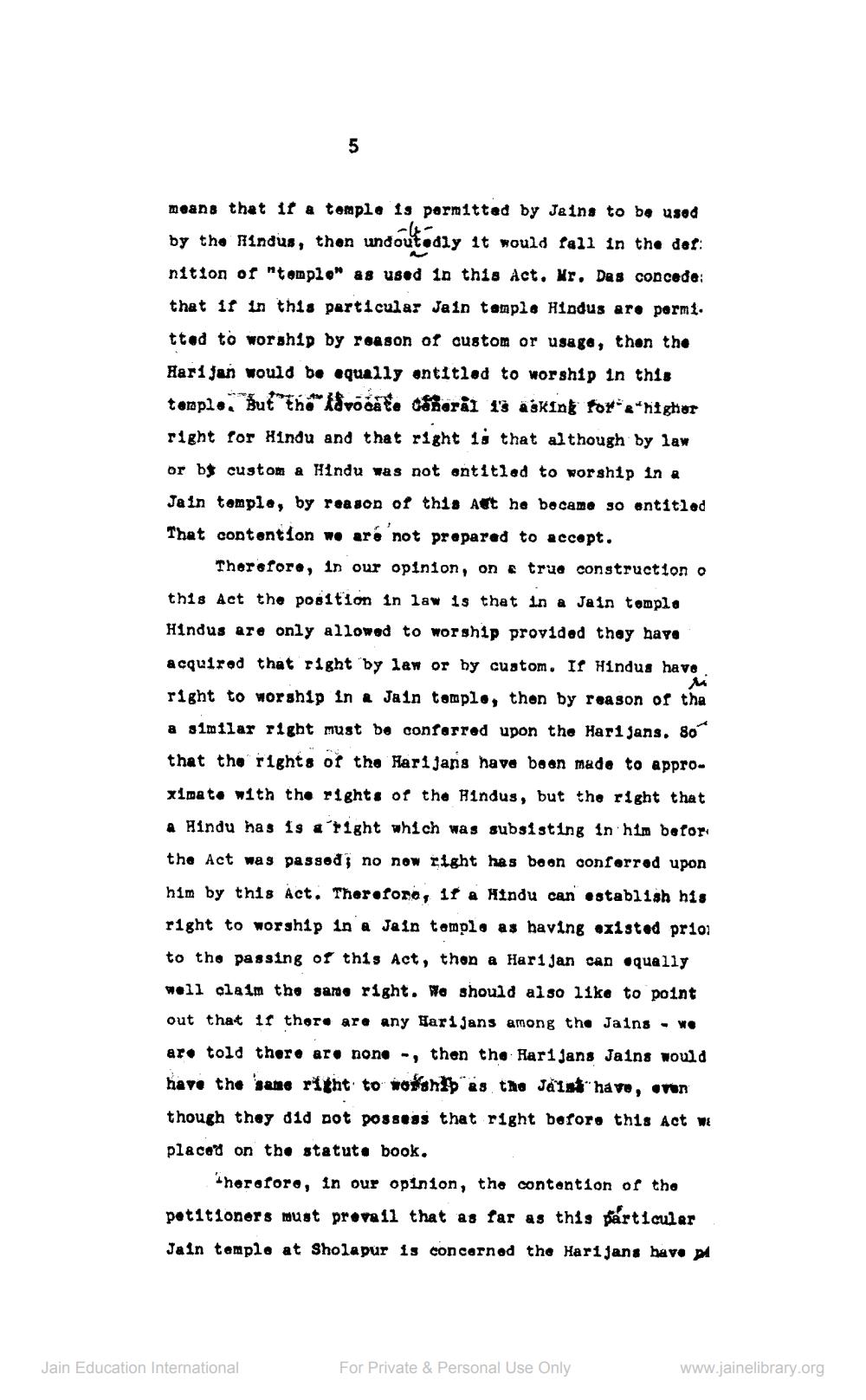________________
means that it a temple is pormitted by Jains to be used by the Mindus, then undoutedly it would fall in the det: nition of "templo" as used in this Act. Ir. Das concede: that if in this particular Jain temple Hindus are permt. tted to worship by reason of custom or usage, then the Harijan would be equally entitled to worship in this temple, But the livõiste odborái 1's asking for enigtor right for Hindu and that right is that although by law or bg custom a Hindu was not antitled to worship in a Ja in temple, by reason of this Act he became so entitled That contention we aré not prepared to accept.
Therefore, in our opinion, on a true construction o this Act the position in law is that in a Jain templa Hindus are only allowed to worship provided they hayo acquired that right by law or by custom. If Hindus have right to worship in a Jain tomple, then by reason of the a similar right must be conferred upon the Hari Jans. 80 that the rights of the Marijans have been made to appro. xinate with the rights of the Rindus, but the right that a Hindu has is a tight which was subsisting in him befor: the Act was passed; no now right has beon conforred upon him by this Act. Therefore, if a Hindu can establish his right to worship in a Jain templo as having existed prio to the passing of this Act, then a Hari Jan can equally well claim tho sano right. We should also like to point out that if there are any Harijans among the Jains - We are told there are none -, then the Harijans Jains would have the same right to votsh! as tho JẢI have, eron though they did not possess that right before this Act we placed on the statute book.
"nerofore, in our opinion, the contention of the petitioners must provail that as far as this particular Jain templo at Sholapur is concerned the Harijans have pl
Jain Education International
For Private & Personal Use Only
www.jainelibrary.org




